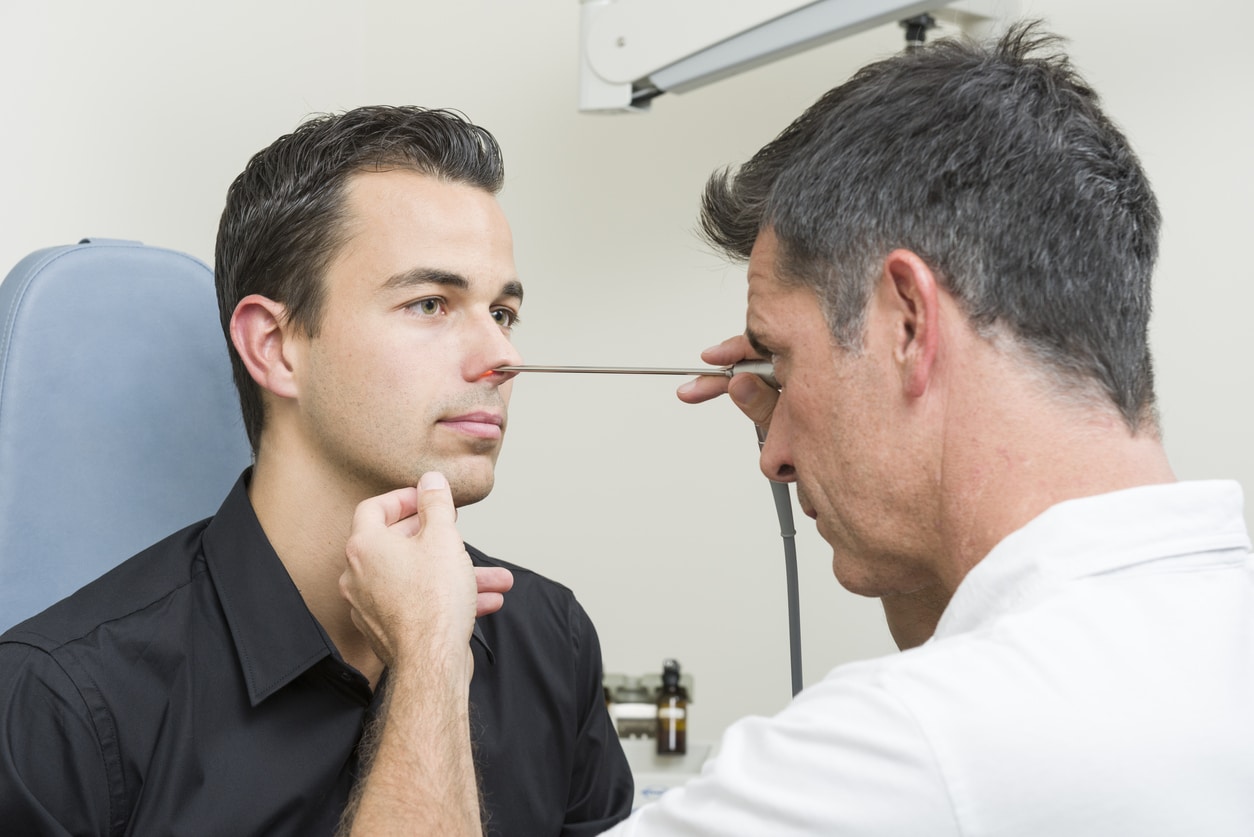Severe sinus issues can cause congestion, facial pain or pressure, poor sleep, and limited airflow. If you’re dealing with long-lasting sinus issues, you might be a good candidate for functional endoscopic sinus surgery (FESS)
What Is Functional Endoscopic Sinus Surgery?

FESS is a minimally invasive sinus surgery that prevents and treats issues like chronic sinusitis and nasal obstructions. During the procedure, your sinus expert will use a thin, flexible tube with a light and camera (an endoscope) to get a better look at the issue causing your symptoms.
After establishing the cause of your symptoms, they’ll insert surgical tools alongside the endoscope to remove bone, diseased tissue, or polyps.
FESS is usually performed as an outpatient procedure under local anesthesia.
When is Sinus Surgery Necessary?
Mild sinus issues usually respond well to antibiotics or allergy medication. However, severe or long-lasting sinus conditions may respond better to surgical solutions like FESS. Two common conditions that may necessitate FESS include:
- Chronic sinus infections. A chronic sinus infection, or sinusitis, is a persistent sinus inflammation lasting longer than 12 weeks.
- Nasal polyps. Nasal polyps are noncancerous growths that can block the nasal and sinus passages. Your sinus expert can remove nasal polyps during FESS.
Before scheduling you for FESS, your sinus expert will review your medical history and perform a physical examination to determine if surgery is your best option.
How Long Is Recovery From Endoscopic Surgery?
It may take a few months after FESS to feel completely normal, but most patients can return to their regular routine within two weeks. Your sinus expert will give you instructions to relieve discomfort and keep your sinuses clear. These may include:
- Sinus irrigation. Using special sinus rinse kits, you’ll irrigate your sinuses at least twice daily until your sinus expert tells you to stop.
- Nasal saline sprays. Your expert may recommend nasal sprays to reduce discomfort after the surgery.
In addition to keeping the sinuses clean, it is also best to avoid straining activities like blowing your nose or lifting excess weight. You should also avoid taking any medication not explicitly prescribed by your sinus expert.
How Effective Is Endoscopic Sinus Surgery?
FESS is highly effective, with studies showing that approximately 80% to 90% of patients who had the surgery reported that it successfully resolved their sinus issues.
Make Your Sinus Appointment Today
If you’ve been dealing with chronic sinus issues, call the experts at Midwest Ear, Nose & Throat Specialists today to discuss whether FESS is right for you.
